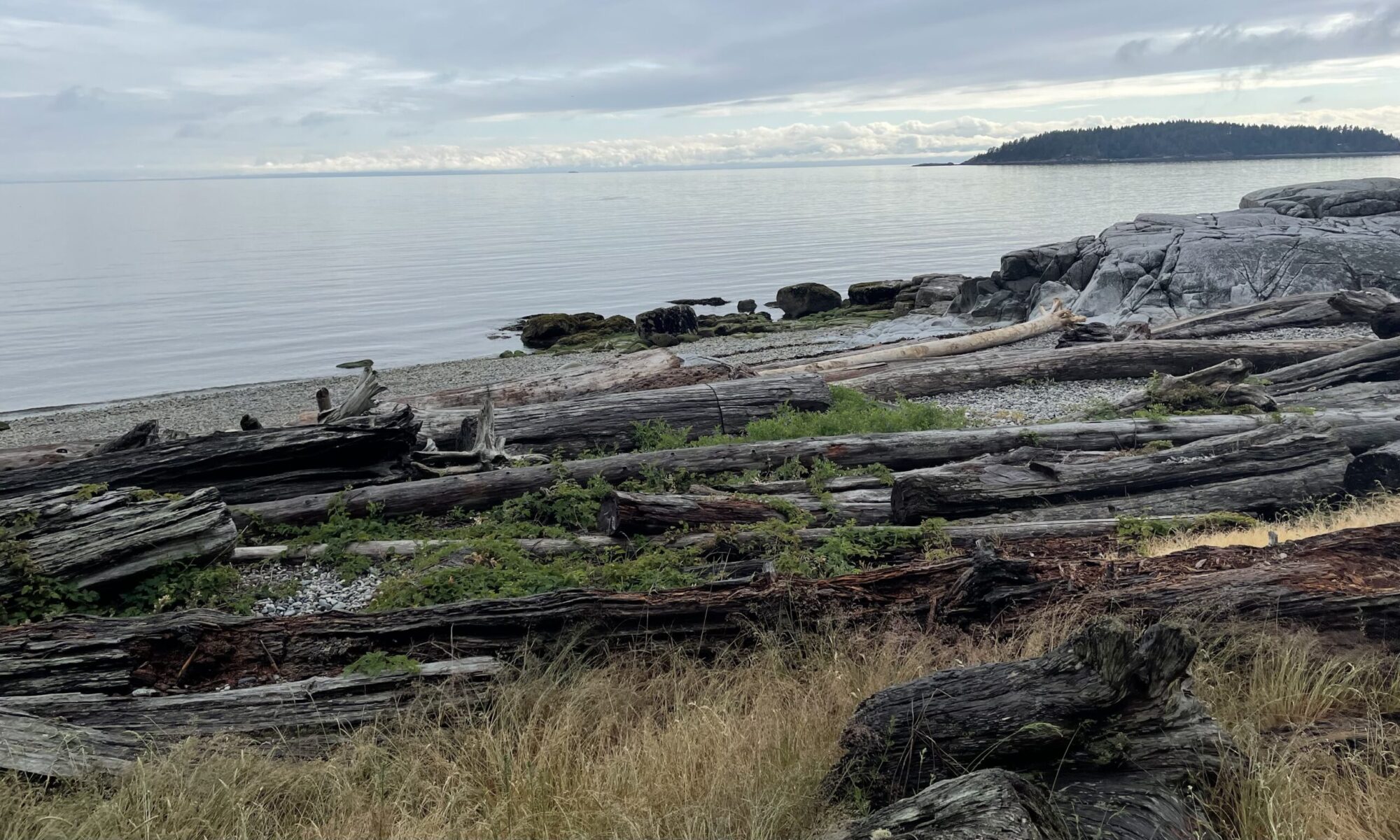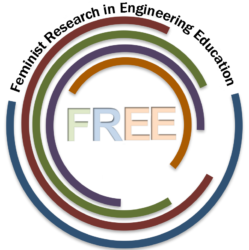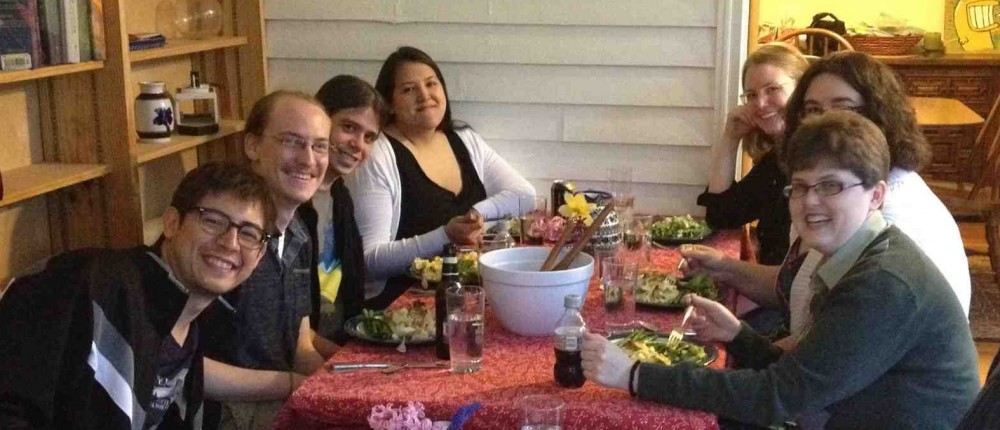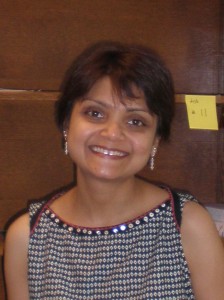Contents
Dina Banerjee, Ph.D.
Dina was a post-doctoral researcher in the FREE group from 2009-2011. Her primary responsibility is the study of the career-related experiences of the women and minority faculty members of the STEM disciplines of Purdue University. She graduated with her PhD from Purdue University in May, 2009. After her admission in Purdue University in 2002, she graduated with her third Masters with sociology major in 2004. Her areas of specialization are gender, work and occupation; development and social change; transnational feminism and globalization; and sociology of developing nations. In her doctoral dissertation she has examined the effects of sex-segregation and racial/ethnic segregation on the job-related well-being of women workers in U.S.A. She is also associated with the Women’s Studies Program at Purdue University. Before coming to the U.S. as a graduate student, she worked as a lecturer in the University of Calcutta (Kolkata, India) teaching courses on gender, industry and labor market; gender and social change; women and development; and sociological theories and methods. Dina worked on the ACP and IE projects within ADVANCE-Purdue. She served as an assistant professor in the Department of Anthropology and Sociology at Shippensburg University, and is now a faculty member in the OB/HRM area of Indian Institute of Management, Udaipur.
FREE-related publications:
- 2011. Banerjee, Dina, Alice L. Pawley. “Learning and Social Change: Using Interviews as Tools to Prompt Reflective Practice.” Reflective Practice: International and Multidisciplinary Perspectives, 12(4) pp. 441-455. Paper through journal.
- 2011. Mercado Santiago, M., Pawley, A. L., Hoegh, J., & Banerjee, D. “Institutional Ethnography as a Method to Understand the Career and Parental Leave Experiences of STEM Faculty Members.” Paper presented at the 118th ASEE Annual Conference & Exposition, June 27. Paper; presentation.
- 2010. Banerjee, Dina and Alice L. Pawley. “Institutional Ethnography: A research method to investigate the work-life experiences of women faculty members in STEM disciplines.” Conference proceedings of the 2010 American Society for Engineering Education National Conference and Exposition, Louisville KY, June 20-23. Article; presentation.
Kacey Beddoes, Ph.D.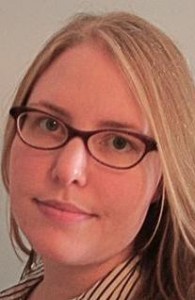
Kacey Beddoes was a postdoctoral researcher in FREE working on ADVANCE Purdue from 2011-2014. Her other research interests include engineering education research on women and gender, feminist methodologies, and international engineering education. She received her PhD in Science and Technology Studies (STS) from Virginia Tech in 2011.
Kacey serves as Managing Editor of Engineering Studies, Journal of the International Network for Engineering Studies. She is also co-editor of What is Global Engineering Education For?: The Making of International Educators from Morgan & Claypool publishers, and Assistant Editor of the Global Engineering Series at Morgan & Claypool.
Further information on her publications and research activities can be found on her homepage. Kacey is now a Research Director at the University of San Diego; her website is here.
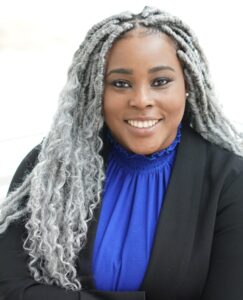 Fantasi Nicole Curry, MS, PhD.
Fantasi Nicole Curry, MS, PhD.
Fantasi Nicole (she/her/hers) identifies as a Black scholar-activist and Black feminist. Her research interests center around the intersecting oppressions experienced by Black women and their journeys to self-definition through resilience and activism in engineering spaces. Her primary career objective is to leverage her research abilities, experiences, and networks to provide Black women with resources for empowerment and success.
She was a graduate research assistant for I-MATTER where she focused on interventions addressing discrimination and biases within engineering teams. She also served as PI and Co-PI for 2 university-funded grants: one focusing on the creation and implementation of a scholar-activist course for students to create social justice-oriented projects within graduate education, and the other focusing on the disciplinary and surveillance practices experienced by Black women in higher education.
Community service is a major pillar of her success and she served as the Undergraduate Outreach Chair for the Black Graduate Student Association and the Graduate Committee Junior Chair and Social Justice and Inclusion Chair for the Engineering Education Graduate Student Association. Fantasi served in many roles (both paid and volunteer) with the Minority Engineering Program at Purdue and has volunteered with the HeadsUp Mentoring Program for underprivileged youth in Lafayette. She is a plus-size model and brand ambassador for Black-owned boutiques and uses her social media platform as an influencer for empowerment and outreach.
She holds a BS and MS in Industrial and Systems Engineering from Mississippi State University and Auburn University, respectively. She graduated with a MS in engineering education from Purdue in spring 2021 , and a PhD from Arizona State University in 2023.
Trina Fletcher, Ph.D.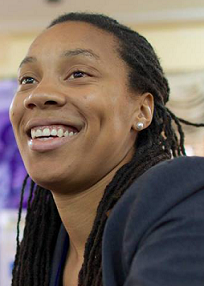
Trina Fletcher was a doctoral student at Purdue University studying Engineering Education with a focus on STEM Education and the African and African-American communities. She was a member of FREE for most of the 2013-14 academic year, and then transferred to the SPHERE lab with Dr. Joyce Main, and the MEDLEE group. Trina was the inaugural President of the HBCU-UP/NSF STEM Scholars Academy in undergrad and a 2-term President for the National Society of Black Engineers chapter. She was a research intern for Norfolk State University and completed technical internships with Lockheed Martin, Caterpillar and Kellogg’s. Her full-time experience includes a leadership development program with Johnson & Johnson and a management role with Eaton Corporation. She enjoys hand-on STEM educational projects such as judging at Science and Engineering research fairs and working with STEM summer campus. She received a grant for the Anacostia High School/GWU STEM Initiative while studying in Washington, DC and her honors include being named an Inspiring Woman by the WNBA’s New York Liberty and receiving the GWU Student Choice Award for Service Excellence for her work in STEM Education. She and her twin sister, Tina, recently hosted international women’s empowerment summits in Dakar, Senegal and Cotonou, Benin in Africa for the Give1Project organization. Trina’s ties to Africa also include being the 2013-2014 Senegal Representative for the National Society of Black Engineers. She holds a Bachelor’s degree in Industrial Technology from the University of Arkansas at Pine Bluff and a Master’s degree in Engineering Management from George Washington University.
Trina is now an assistant professor at Florida International University in the College of Engineering and Computing, and can be found on LinkedIn.
Jordana Gartner Hoegh, M.S.
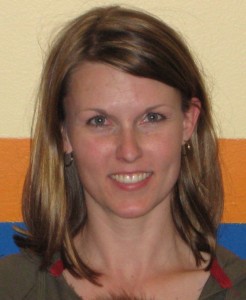 Jordana was a research assistant for FREE, joining in 2008 and continuing in her position until 2012, while she was a PhD student in sociology. Her research while working for FREE included transition to parenthood, self and identity, and work-family balance. Her dissertation was on the career trajectories of women engineers with young children. Publications:
Jordana was a research assistant for FREE, joining in 2008 and continuing in her position until 2012, while she was a PhD student in sociology. Her research while working for FREE included transition to parenthood, self and identity, and work-family balance. Her dissertation was on the career trajectories of women engineers with young children. Publications:
- 2011. Pawley, Alice L., Hoegh, J. “Exploding pipelines: Mythological metaphors structuring diversity-oriented engineering education research agendas.” Paper presented at the 118th American Society for Engineering Education Annual Conference & Exposition, Vancouver BC, June 2011. Paper.
- 2011. Mercado Santiago, M., Pawley, A. L., Hoegh, J., & Banerjee, D. “Institutional Ethnography as a Method to Understand the Career and Parental Leave Experiences of STEM Faculty Members.” Paper presented at the 118th ASEE Annual Conference & Exposition, Vancouver BC, June 27. Paper; presentation.
- 2010. Hoegh, Jordana, and Alice L. Pawley. “Modeling the career pathways of women STEM faculty through oral histories and participatory research methods.” Conference proceedings of the 2010 American Society for Engineering Education National Conference and Exposition, Louisville KY, June 20-23. Article; presentation.
Kyle Jones, Ph.D.
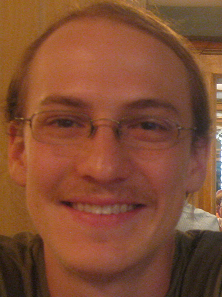 Kyle Jones was a doctoral student in Cultural Anthropology whose research interests focus on youth practices and politics, expressive culture, tensions between identity and agency, globalization, urban space, and ethnographic and feminist methodologies. Geographically speaking, his area of interest is Latin America with a focus on Peru and the Andes. He was a research assistant in the ADVANCE project for 2012-13. He earned his Bachelor’s degree in Anthropology with a minor in Geography from the University of Oklahoma in 2008, and received his Master’s in Anthropology from Purdue in 2011. His Master’s thesis, Hip Hop Huancayo: Youth Identities, Performative Sites, and the Politics of Legitimation received the 2011 College of Liberal Arts Distinguished Master’s Thesis Award. This year a Dissertation Proposal Development Fellowship from the Social Science Research Council enabled him to further develop his research project on the youth-led hip hop associations that have recently emerged throughout Peru. For his dissertation, he explored the ways in which youth are forging senses of collectivity to create spaces for self-representation and cultural expression within and across Peruvian cities. Kyle graduated in 2016 and now works for Esri.
Kyle Jones was a doctoral student in Cultural Anthropology whose research interests focus on youth practices and politics, expressive culture, tensions between identity and agency, globalization, urban space, and ethnographic and feminist methodologies. Geographically speaking, his area of interest is Latin America with a focus on Peru and the Andes. He was a research assistant in the ADVANCE project for 2012-13. He earned his Bachelor’s degree in Anthropology with a minor in Geography from the University of Oklahoma in 2008, and received his Master’s in Anthropology from Purdue in 2011. His Master’s thesis, Hip Hop Huancayo: Youth Identities, Performative Sites, and the Politics of Legitimation received the 2011 College of Liberal Arts Distinguished Master’s Thesis Award. This year a Dissertation Proposal Development Fellowship from the Social Science Research Council enabled him to further develop his research project on the youth-led hip hop associations that have recently emerged throughout Peru. For his dissertation, he explored the ways in which youth are forging senses of collectivity to create spaces for self-representation and cultural expression within and across Peruvian cities. Kyle graduated in 2016 and now works for Esri.
Cole Joslyn, Ph.D.
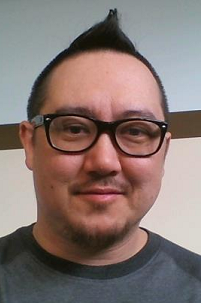 Cole was a doctoral student in the School of Engineering Education at Purdue University. His research interests include engineering as a socially just profession in service to humanity and holistic approaches to engineering education such as ethics of care, humanistic education, and spirituality. He holds a B.S. in Industrial Engineering and a M.Ed. specializing in math education. Cole has worked as an engineer in industry, a pastor in full-time ministry, and a high school math teacher. Cole transferred to the FACE Group. He is now an assistant professor of the practice at University of Texas-El Paso.
Cole was a doctoral student in the School of Engineering Education at Purdue University. His research interests include engineering as a socially just profession in service to humanity and holistic approaches to engineering education such as ethics of care, humanistic education, and spirituality. He holds a B.S. in Industrial Engineering and a M.Ed. specializing in math education. Cole has worked as an engineer in industry, a pastor in full-time ministry, and a high school math teacher. Cole transferred to the FACE Group. He is now an assistant professor of the practice at University of Texas-El Paso.
Katie Morley
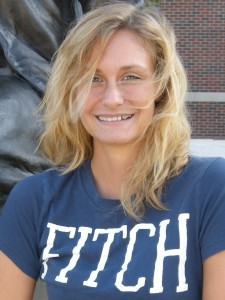 Katie was a undergraduate student in Aeronautical Engineering, graduating in December of 2011. As a member of the Society of Women in Engineering, and a participant in the Women in Engineering Program at Purdue University, she took interest in feminist engineering research. She is particularly interested to learn how women balance an engineering career and a family as well as the transitional phase as graduating engineers enter industry. Katie worked on the WIETY project with FREE from 2008-2011. She graduated with her bachelor’s degree in December 2011.
Katie was a undergraduate student in Aeronautical Engineering, graduating in December of 2011. As a member of the Society of Women in Engineering, and a participant in the Women in Engineering Program at Purdue University, she took interest in feminist engineering research. She is particularly interested to learn how women balance an engineering career and a family as well as the transitional phase as graduating engineers enter industry. Katie worked on the WIETY project with FREE from 2008-2011. She graduated with her bachelor’s degree in December 2011.
Publications:
- 2011. Morley, K. M., Pawley, A. L., Jordan, S. S., & Adams, R. “Gender and Engineering: Using Photo Elicitation as a Method of Inquiry.” Paper presented at the 118th ASEE Annual Conference & Exposition, June 27. Paper; presentation.
Lindsey Nelson, M.S.
 Lindsey Nelson earned a M.S. in Engineering Education at Purdue University with a research focus centered upon helping engineering students connect meaningfully with global problems. After receiving a BS in Mechanical Engineering from Boston University, Lindsey completed an MA in Poverty and Development from the Institute of Development Studies at the University of Sussex. Lindsey’s research interests include engineering design for poverty alleviation, sustainable design, the public’s understanding of engineering, poverty mitigation, student-centered engineering curricula, global participation, engineering design methodologies, real-world prototyping activities, and material culture. Teaching interests include engineering design, authentic assessment, student advising, and K-12 outreach. Lindsey has worked with elementary, middle school, high school, and undergraduate students in formal and informal settings, including serving as an advisor for an EPICS team that creates children’s museum exhibits. Lindsey strives to develop professionally as a teacher, implementing best practices informed by rigorous research. Lindsey now runs a business called Opportunity Unlocked.
Lindsey Nelson earned a M.S. in Engineering Education at Purdue University with a research focus centered upon helping engineering students connect meaningfully with global problems. After receiving a BS in Mechanical Engineering from Boston University, Lindsey completed an MA in Poverty and Development from the Institute of Development Studies at the University of Sussex. Lindsey’s research interests include engineering design for poverty alleviation, sustainable design, the public’s understanding of engineering, poverty mitigation, student-centered engineering curricula, global participation, engineering design methodologies, real-world prototyping activities, and material culture. Teaching interests include engineering design, authentic assessment, student advising, and K-12 outreach. Lindsey has worked with elementary, middle school, high school, and undergraduate students in formal and informal settings, including serving as an advisor for an EPICS team that creates children’s museum exhibits. Lindsey strives to develop professionally as a teacher, implementing best practices informed by rigorous research. Lindsey now runs a business called Opportunity Unlocked.
Publications:
- 2010. Nelson, Lindsey and Alice L. Pawley. “Using the Emergent Methodology of Domain Analysis to Answer Complex Research Questions.” Conference proceedings of the 2010 American Society for Engineering Education National Conference and Exposition, Louisville KY, June 20-23. Article;presentation.
- 2011. Nelson, Lindsey. “Research and Development Strategies for Innovations that Alleviate Poverty.” Studies in Material Thinking, Vol 6. Article
- 2012. Nelson, Lindsey. “Design for the Other 90% and Appropriate Technology: The Legacies of Paul Polak and E.F. Schumacher.” Conference proceedings of the 2012 American Society for Engineering Education National Conference and Exposition, San Antonio TX, June 10-13. Article; presentation.
- 2012. Nelson, Lindsey. “Scaffolding Undergraduate Design Education with the Wellbeing Framework.” Conference proceedings of the 2012 American Society for Engineering Education National Conference and Exposition, San Antonio TX, June 10-13. Article; presentation.
Canek Phillips, Ph.D.
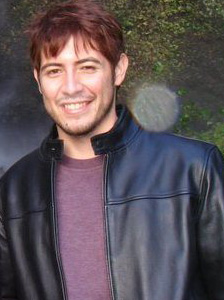 Canek graduated with his PhD in Engineering Education from Purdue University in Fall 2016. His research interests include identifying methods of making engineering a more inclusive field and methods of demystifying technology. Canek grew up in Austin, TX and loves using the word y’all for various reasons related to being from Austin, TX and also because y’all is a very inclusive word. Canek’s dissertation is titled, “Race, class and gender in engineering education: A quantitative investigation of First Year enrollment.” Canek now works as a research scientist at the Rice University in Houston, TX.
Canek graduated with his PhD in Engineering Education from Purdue University in Fall 2016. His research interests include identifying methods of making engineering a more inclusive field and methods of demystifying technology. Canek grew up in Austin, TX and loves using the word y’all for various reasons related to being from Austin, TX and also because y’all is a very inclusive word. Canek’s dissertation is titled, “Race, class and gender in engineering education: A quantitative investigation of First Year enrollment.” Canek now works as a research scientist at the Rice University in Houston, TX.
Ranjani Rao, M.S.
Ranjani Rao is a doctoral student in Organizational Communication in the Department of Communication at Purdue. She earned her masters in Media, Technology and Society from the same department in 2008. Prior to joining Purdue, Ranjani worked as a journalist with Indo-Asian News Service in New Delhi, India after obtaining her BA (Honours) in Economics from Delhi University and Post Graduate Diploma in Journalism from the Indian Institute of Mass Communication, New Delhi. Ranjani joined FREE in January 2010 as a graduate research assistant on the Assessing Sustainability Knowledge (ASK) project. She was engaged in developing a framework to assess sustainability knowledge in engineering undergraduate students, mapped on to expert views and literature that can help engineering faculty members identify and structure essential sustainability-related content and develop methods to bring these concepts organically into courses across the curriculum. Ranjani’s research explorations in communication have included media and family communication, work-family dynamics and qualitative research methods in engineering contexts. Her master’s thesis looked at media coverage of child abuse and neglect in the context of the Greater Lafayette Journal and Courier’s coverage of the 2005 Aiyana Gauvin case. Publications:
- 2013. Ranjani, Rao, Pawley, A.L., Hoffmann, S.R., Cardella, M.E., and Ohland, M.W. An Ecofeminist Grounded Analysis of Sustainability in Engineering Education: Skill Set, Discipline and Value. International Journal of Engineering Education, 29(6). Paper
- 2011. Hoffmann, Stephen R., Pawley, A. L., Rao, R., Cardella, M. E., Ohland, M.W. “Defining “Sustainable Engineering”: A Comparative Analysis of Published Sustainability Principles and Existing Courses.” Paper presented at the 118th American Society for Engineering Education Annual Conference & Exposition, June 2011. Paper; presentation.
- 2010. Rao, Ranjani, Alice L. Pawley, Stephen R. Hoffmann, Matthew W. Ohland, Monica E. Cardella. “Work In Progress: Development of a framework to Assess Sustainability Knowledge (ASK) in engineering undergraduate students.” Conference proceedings of the 40th ASEE/IEEE Frontiers in Education Conference, Washington DC, October 27-30. Article.
Corey Schimpf, Ph.D.
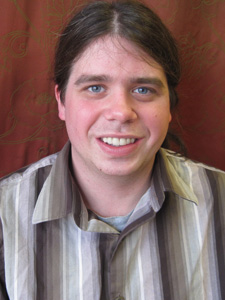 Corey earned his PhD in Engineering Education from Purdue University in December 2015. He is interested in the intersection between technology and society, more specifically how new communication and interactive technologies mediate and transform the way people interact, create new spaces for interaction and influence the ways people come to understand themselves. In the context of engineering education, understanding how people are affected by and interact with these technologies can inform how these technologies are deployed for learning.
Corey earned his PhD in Engineering Education from Purdue University in December 2015. He is interested in the intersection between technology and society, more specifically how new communication and interactive technologies mediate and transform the way people interact, create new spaces for interaction and influence the ways people come to understand themselves. In the context of engineering education, understanding how people are affected by and interact with these technologies can inform how these technologies are deployed for learning.
Additionally, he is interested in how sociological thinking can be leveraged into engineers’ education as an approach to illuminate the connections between 1) engineering artifacts and people’s social life, needs and difficulties and 2) how people will interact with an artifact once it has been introduced into a group, society, or beyond. Corey is trained in social psychology and complexity (applied to sociology) approaches. Corey is now an assistant professor of engineering education at the University of Buffalo.
Saranya Srinivasan, Ph.D.
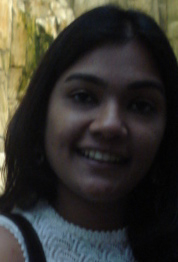 Saranya was a graduate student then post-doctoral researcher working with ADVANCE-Purdue from 2009-2010. She graduated with her PhD from the School of Education, Purdue University. Her focus was on Special Education with an emphasis on augmentative and alternative communication. Prior to this, she completed an EdS degree from the University of Virginia and has a Master’s and double Bachelor’s degrees’ from India. She joined the FREE group as a graduate research assistant in Spring 2009. On completion of her doctoral degree she continued on as a post-doctoral research fellow to work instrument development for quantitative and qualitative research. She has varied research interests that include – institutional climate in STEM and social sciences; cross-disciplinary learning; STEM education for individuals with disabilities (especially design and access); augmentative and alternative communication (neurocognitive issues); communication development and disabilities; diversity/multicultural issues in education. Saranya worked on the ACP-ADVANCE project until August 2010; she now lives in Chennai, India where she runs the Grassroots School.
Saranya was a graduate student then post-doctoral researcher working with ADVANCE-Purdue from 2009-2010. She graduated with her PhD from the School of Education, Purdue University. Her focus was on Special Education with an emphasis on augmentative and alternative communication. Prior to this, she completed an EdS degree from the University of Virginia and has a Master’s and double Bachelor’s degrees’ from India. She joined the FREE group as a graduate research assistant in Spring 2009. On completion of her doctoral degree she continued on as a post-doctoral research fellow to work instrument development for quantitative and qualitative research. She has varied research interests that include – institutional climate in STEM and social sciences; cross-disciplinary learning; STEM education for individuals with disabilities (especially design and access); augmentative and alternative communication (neurocognitive issues); communication development and disabilities; diversity/multicultural issues in education. Saranya worked on the ACP-ADVANCE project until August 2010; she now lives in Chennai, India where she runs the Grassroots School.
Marisol Mercado Santiago, Ph.D.
Marisol graduated with a Ph.D. in Engineering Education from Purdue University in December 2014 under the supervision of Dr. Pawley. She was granted a National Science Foundation Graduate Research Fellow from 2011 to 2014. Her dissertation is titled “Culturally responsive engineering education: A case study of a pre-college introductory engineering course at Tibetan Children’s Village School of Selakui.” She then worked as a researcher at the University of Michigan, and now is in software support in Amherst, New York. LinkedIn: www.linkedin.com/in/mmsantiago.
Casey Wright, Ph.D.
Casey Wright (she/her/hers) received her PhD in Chemical Education at Purdue University in 2022. Her interests are in social justice in STEM education. Generally, her research has explored how STEM education affords or constrains opportunities for historically minoritized groups in order to move toward more socially just institutions. She approaches this through studies in the general chemistry curriculum, inquiry into the institution of STEM higher education, and research into historical boundaries within chemistry higher education. Her dissertation research focuses on women’s participation in STEM (science, technology, engineering, and mathematics) disciplines and how women’s experiences of pregnancy and/or parenting are organized by policies and practices of higher education as they obtain graduate STEM degrees. She holds a Master’s Degree in Chemistry Education from Purdue University and a Bachelor’s degree in Biochemistry from Western Michigan University. She currently works as a postdoctoral fellow for the Center for Research on Instructional Change in Postsecondary Education at Western Michigan University.
Michele Yatchmeneff, Ph.D.
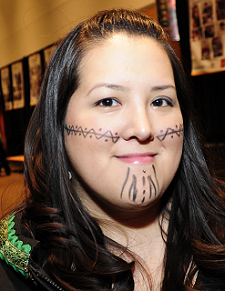 Michele graduated with her PhD in Engineering Education from Purdue University in December 2015. Her research interests include what motivates Indigenous students to go to college, high school engineering education, and improving college retention. She conducted her dissertation research on developing a tool to understand why the Alaska Native Science & Engineering Program (ANSEP) Precollege Computer Assembly component works to encourage high school students to take courses to prepare them for engineering at the college level. She holds a B.S. in Civil Engineering and a M.S. in Engineering Management. Michele grew up in Alaska and is now one of the first two Alaska Natives to serve as faculty members in engineering at the University of Alaska Anchorage.
Michele graduated with her PhD in Engineering Education from Purdue University in December 2015. Her research interests include what motivates Indigenous students to go to college, high school engineering education, and improving college retention. She conducted her dissertation research on developing a tool to understand why the Alaska Native Science & Engineering Program (ANSEP) Precollege Computer Assembly component works to encourage high school students to take courses to prepare them for engineering at the college level. She holds a B.S. in Civil Engineering and a M.S. in Engineering Management. Michele grew up in Alaska and is now one of the first two Alaska Natives to serve as faculty members in engineering at the University of Alaska Anchorage.
